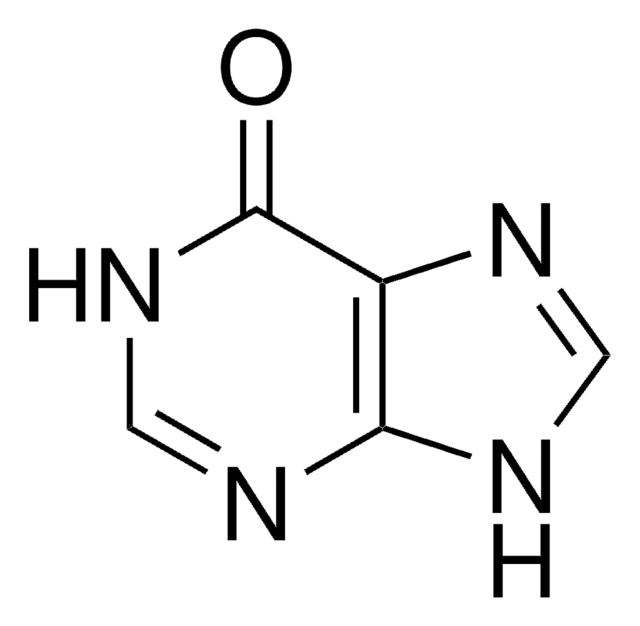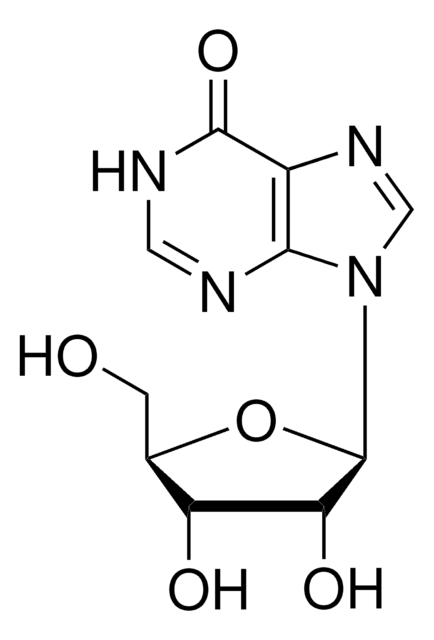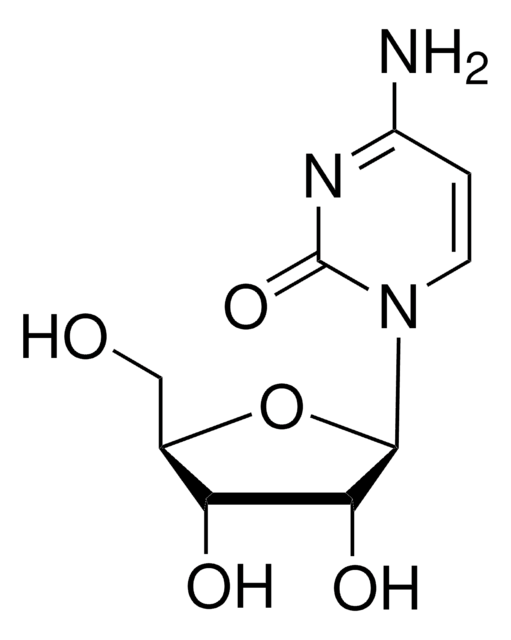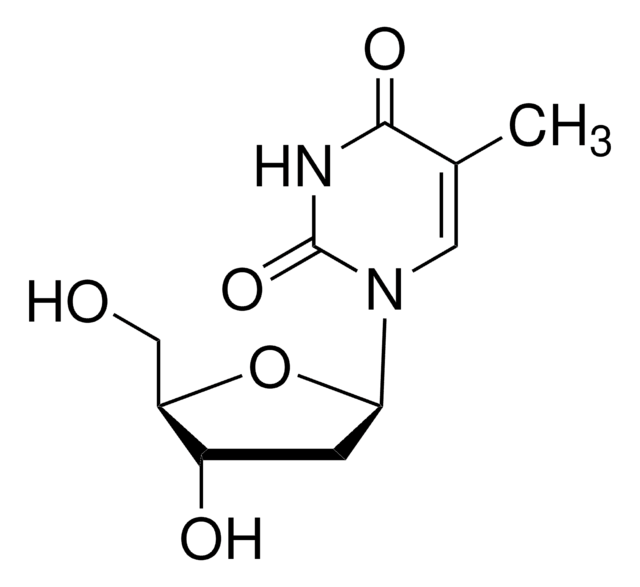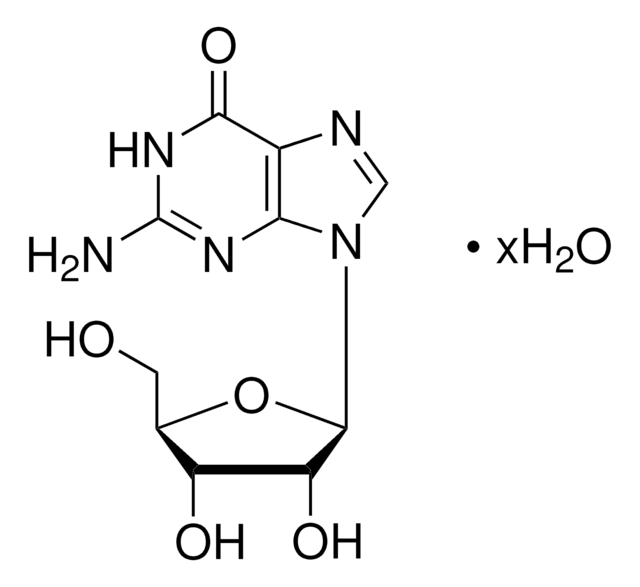V900452
Hypoxanthine
Vetec™, reagent grade, 98%
Sinónimos:
6-Hydroxypurine
About This Item
Productos recomendados
grado
reagent grade
Línea del producto
Vetec™
Análisis
98%
formulario
powder
mp
>300 °C (lit.)
solubilidad
formic acid: water (2:1): 50 mg/mL, clear to slightly hazy
cadena SMILES
O=C1NC=Nc2nc[nH]c12
InChI
1S/C5H4N4O/c10-5-3-4(7-1-6-3)8-2-9-5/h1-2H,(H2,6,7,8,9,10)
Clave InChI
FDGQSTZJBFJUBT-UHFFFAOYSA-N
¿Está buscando productos similares? Visita Guía de comparación de productos
Aplicación
Información legal
Código de clase de almacenamiento
11 - Combustible Solids
Clase de riesgo para el agua (WGK)
WGK 3
Punto de inflamabilidad (°F)
Not applicable
Punto de inflamabilidad (°C)
Not applicable
Certificados de análisis (COA)
Busque Certificados de análisis (COA) introduciendo el número de lote del producto. Los números de lote se encuentran en la etiqueta del producto después de las palabras «Lot» o «Batch»
¿Ya tiene este producto?
Encuentre la documentación para los productos que ha comprado recientemente en la Biblioteca de documentos.
Nuestro equipo de científicos tiene experiencia en todas las áreas de investigación: Ciencias de la vida, Ciencia de los materiales, Síntesis química, Cromatografía, Analítica y muchas otras.
Póngase en contacto con el Servicio técnico